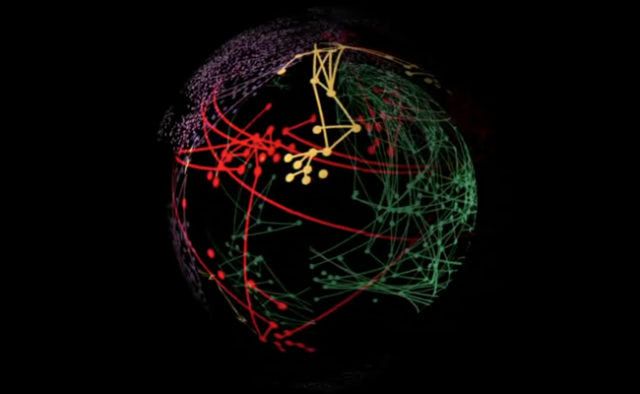The human impact on our planet can hardly be underestimated. Climate change, synthetic biology, mass urbanization – ‘We were here’ echoes all over. Although many people have tried to improve our relationship with nature, few have asked the elementary question ‘what is nature?’
The Next Nature philosophy radically shifts your notion of nature. Our image of nature as static, balanced and harmonic is naive and up for reconsideration. Where technology and nature are traditionally seen as opposed, they now appear to merge or even trade places.
We must no longer see ourselves as the anti-natural species that merely threatens and eliminates nature, but rather as catalysts of evolution. With our urge to design our environment we create a ‘next nature’ which is unpredictable as ever: wild software, genetic surprises, autonomous machinery and splendidly beautiful black flowers. Nature changes along with us!
1. Share a richer understanding of nature
Spread awareness and knowledge about the changing relationship between people, nature and technology.
2. Balance biology and technology
Explore how technology is taking on its own natural momentum. Expose and strengthen the connections between the biosphere and the technosphere.
3. Save the humans
Ensure a liveable existence for the people who come after us by charting a path for the future that’s desirable for humanity and for the planet as a whole.

Our vision
Nature changes along with us
Although it is tempting to think the perfect natural paradise existed, before humans got their hands on it, we need to realise that nature has always been in motion. Evolution goes on. Nature is a dynamic rather than a static reality.
People aren't separate from nature. We're part of it.
We’re not an anti-natural species, capable only of spoiling and wrecking nature. We come from nature. When a bird builds a nest, we call it nature; when people build a network of motorways, it’s fundamentally no different, except that our impact is much greater than the bird’s.
We shouldn't be obsessed with unspoilt nature.
There are few or no places left on earth where human beings have not gone or their presence can’t be felt. A romantic yearning for untouched nature won’t help us to deal with pressing issues like climate change, deforestation and declining biodiversity.
We're co-evolving with technology.
Just as bees and flowers have evolved to be symbiotic – bees, as they gather nectar, help flowers to reproduce – people are dependent on technology and vice versa. We are technological creatures. Since our first day as human beings, we’ve created technology. It comes naturally to us. Our technology has grown so complex and omnipresent, though, that it’s developed a natural dynamism of its own, and we need to understand it better.
We're a factor in evolution
Although it is tempting to think the perfect natural paradise existed, before humans got their hands on it, we need to realise that nature has always been in motion. Evolution goes on. Nature is a dynamic rather than a static reality.
Human beings are not the dominant species on earth.
Although it’s seductive to think of human beings as the dominant species on earth, many others play important roles too. Bacteria, insects, algae colonies, and the technological systems with which we are co-evolving all have a dynamism and an agenda of their own, separate from the human perspective.
We must go forward to Nature.
We can set the goal of developing technology that takes our human needs and strengths as its point of departure; that gives us power; that enhances our senses and our capabilities; that connects to our instincts and the dreams about ourselves that we’ve realised. Such technology will feel completely natural. Truly advanced technology is indistinguishable from nature.
Nature likes to hide itself.
We’ll never be able to completely understand or analyse nature. We must remain humble in the presence of nature. We are just one species on a small blue dot in a vast cosmic theatre. Nature is bigger than us. It will always continue to surprise, amaze and challenge us. It will never stop, and that’s a wonderful thing.

